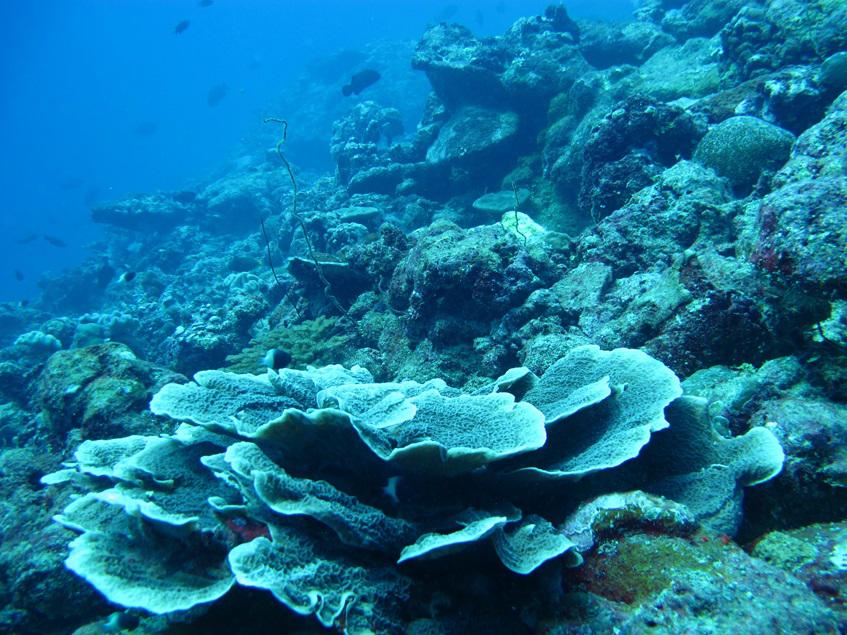Rohan Arthur
Other projects
11 Nov 2010
Assessing Resilience in Coral Reef Seascape: Bleaching Responses and Recovery in the Lakshadweep Archipelago
In the wake of repeated mass bleaching of the Lakshadweep atoll reefs, our work attempts to understand patterns of change and stability by establishing a predictive reef monitoring network across the archipelago.

Post mortality deep reef.
As climate uncertainty increases, it is becoming increasingly difficult to predict how vulnerable ecosystems like coral reefs are likely to respond. Finding appropriate solutions to stem the alarming decline of these systems is not easy. While, at the regional level, it makes little sense to address the ultimate causes of global climate change, understanding the relative ability of ecosystems to buffer changes will help prioritise management efforts to enhance resilience where possible and reduce stressors that increase disturbance susceptibility.
Our study builds on ongoing work in the Lakshadweep, supported by the RSG that is helping determine long-term responses of reefs to repeated climate-related disturbances. By identifying factors that contribute to resilience and susceptibility, this study is working to establish key processes that drive overall reef resilience in the face of future climate change. This information will allow us to generate a map of resilience for the Lakshadweep reefs to help prioritise management initiatives.
At another level, our studies are attempting to establish rates of important functional processes across the gradient of resilience. This will add to studies we are conducting in the Lakshadweep documenting the consequences of declining resilience for ecosystem function, communities, fish populations and species behaviour. This will be a potentially significant contribution to global efforts to understand thresholds and feedbacks that complex ecosystems like coral reefs often show in the face of increasing disturbance. Despite being densely populated, the Lakshadweep reefs have relatively low anthropogenic pressures, making it fairly unique in the developing tropics. This gives us an opportunity to contribute to an understanding of factors influencing reef responses uninfluenced by local anthropogenic stressors that normally cloud these responses, and may help suggest models for building resilience into the management of reef systems across the tropics.